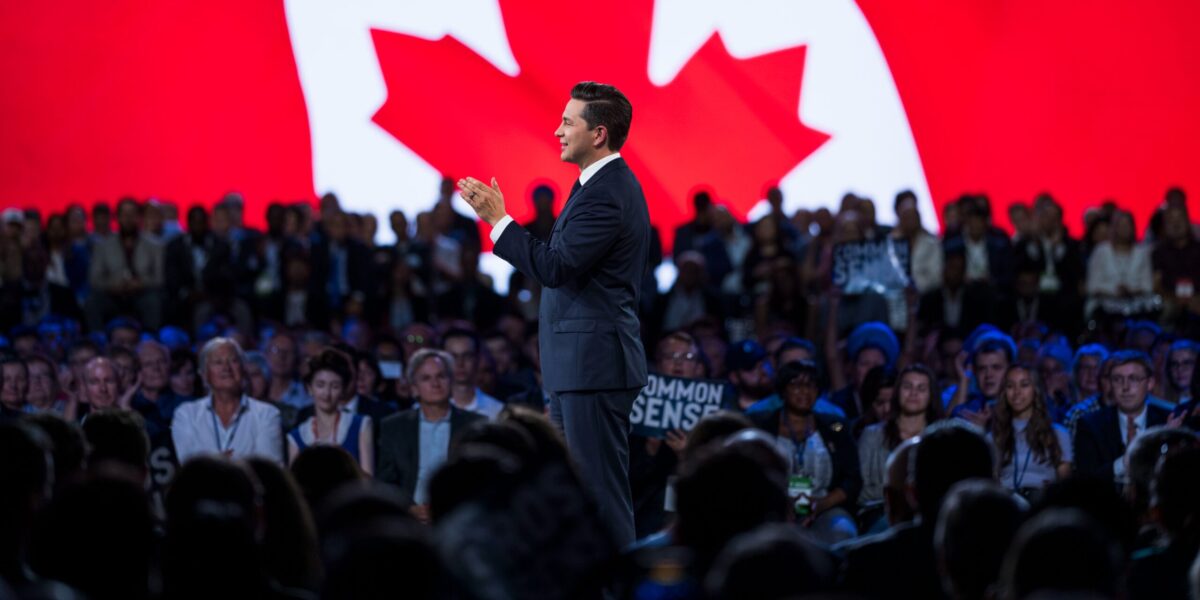Justin Trudeau’s fall from grace probably has a lot to do with the perception of him as a patrician close to the heart of the Canadian establishment, who fraternizes with corporate lobbyists and vacations at the Caribbean retreats of billionaires.
Meanwhile, Conservative leader Pierre Poilievre, a scrappy guy with modest Alberta roots, has been traversing the country describing Canada as a “living hell” for working class people, and promising that “when I’m prime minister my obsession — my daily obsession — will be about what is good for the working-class people of this country.”
The contrast between the images of the blue-blood patrician and the hard-scrabble populist has been powerful, and likely a key factor in helping Poilievre vault far ahead of Trudeau in the polls.
But Poilievre has managed to pass himself off as anti-elitist and populist largely because Canadians have heard little about all the time he spends — when the cameras aren’t rolling — courting the country’s business elite.
Even as Poilievre has attacked corporate lobbyists — vowing they won’t be able to shape policy under his Conservative government as they have under the Liberals — he’s been consorting with a wide range of corporate lobbyists at about 50 extravagant private fundraising events across the country since being chosen party leader almost two years ago.
Details of these interactions have come to light due to investigative work by the online outlet The Breach, which has documented the presence of more than a hundred active or recent corporate lobbyists at Poilievre fundraising galas held at private mansions and swanky clubs, by carefully combing through the records in Elections Canada’s registry.
For instance, Poilievre was the central attraction at a lavish Regina fundraiser last November hosted by Saskatchewan’s wealthiest family, the Semples, owners of the Brandt Group of Companies, with major holdings in real estate, mining, construction, agriculture and pipeline equipment.
It didn’t seem to bother Poilievre that the Semples have a reputation for being anti-worker. In addition to serious health and safety violations, one of their companies was reprimanded by a labour tribunal for trying to impose its own collective agreement, which eliminated more than 50 pages from the existing agreement and added “unreasonable clauses” that gave the company extra powers.
Poilievre has publicly railed against the rising rents faced by working people but was apparently happy to consort with and accept donations (up to $1,725 per person) from some key players in an industry that has pushed up annual rents in the province by 12 to 16 per cent.
Of course, the Liberals too hold fundraising galas and collect money from wealthy corporate interests.
But Poilievre has constructed a whole political persona for himself around the notion that he’s different, claiming recently that he’s visited 110 shop floors and five union halls while largely avoiding speaking to business groups.
Indeed, he’s warned business that they shouldn’t expect a warm welcome from government under his watch, that he plans to revamp the cosy relationship the Liberals have had with business.
Meanwhile, behind the scenes, Poilievre seems receptive to the corporate crowd.
As The Breach noted in an earlier investigation, the corporate set is heavily represented on the Conservative national council, which includes lobbyists representing major oil, pharmaceutical and real estate companies, as well as retail giants and others opposed to unions and minimum wage hikes.
None of the members of this 20-member Conservative council appears to represent workers.
So, if he’s elected prime minister, should we expect Poilievre to govern as someone whose “daily obsession” is helping the working class, or as someone who never forgets that the corporate class paid for his winning campaign.
This column was originally published in the Toronto Star.



